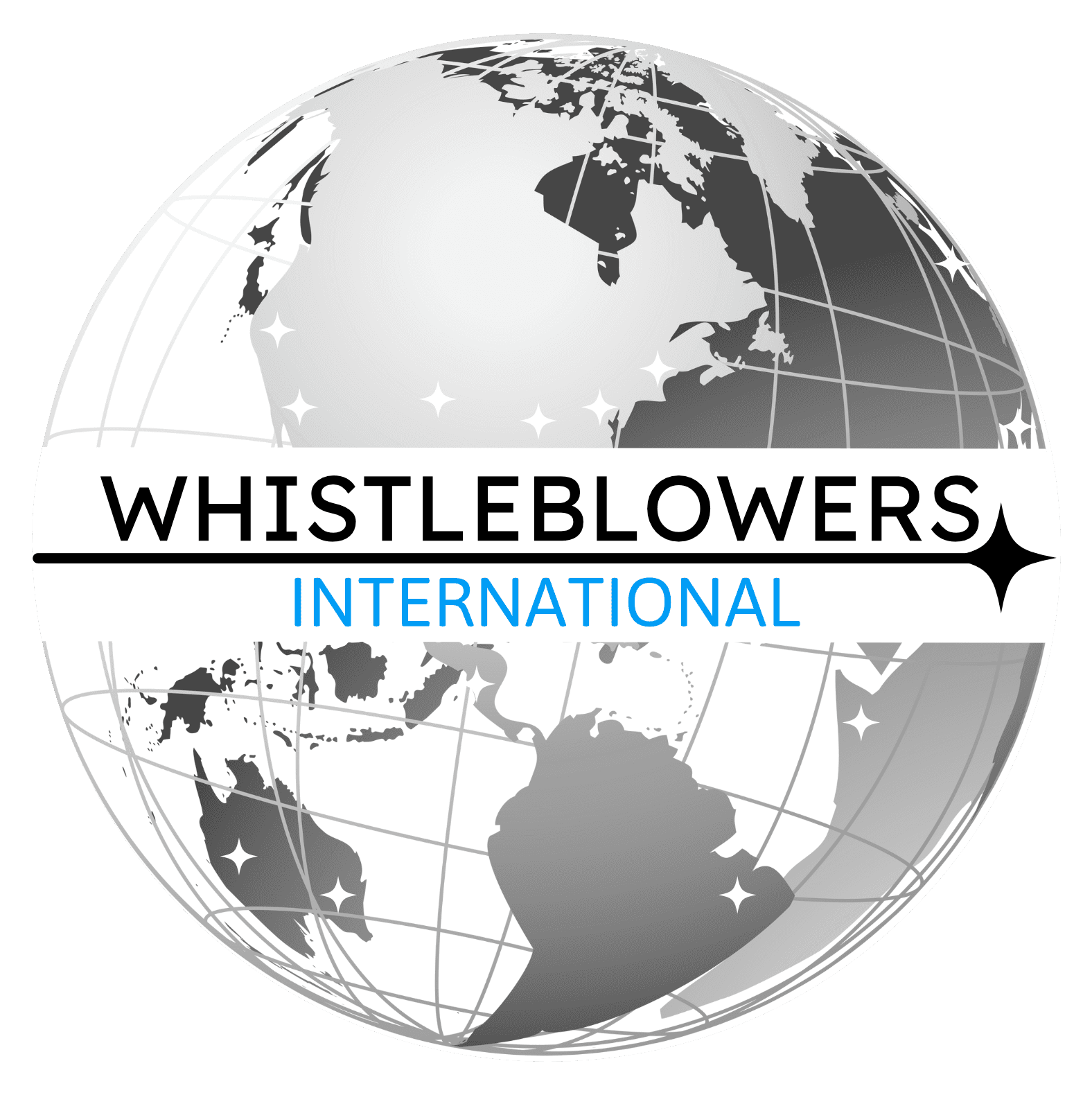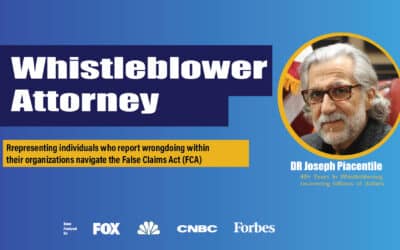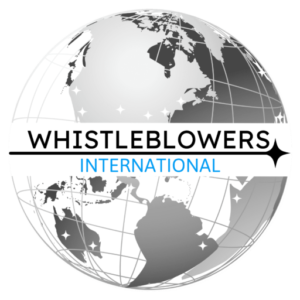MONEY LAUNDERING AND THE U.S. ANTI-MONEY LAUNDERING WHISTLEBLOWER PROGRAM
MONEY LAUNDERING AND THE U.S. ANTI-MONEY LAUNDERING WHISTLEBLOWER PROGRAM
The U.S.’s new anti-money laundering whistleblower rewards program was enacted in 2021. This program is designed to reward whistleblowers for reporting insider information about some person or entity violating the U.S. anti-money laundering laws. The idea of this program is that it should allow whistleblowers to report wrongdoing and not be punished for doing so. The hope is that because of these protections and potential financial incentives, more people will come forward and report money laundering crimes, which will lead to a higher rate of prosecutions and convictions related to crimes involving money laundering and other types of financial frauds.
The way this program works is relatively simple. If you have any inside information about someone or some entity breaking U.S. anti-money laundering laws, specifically sanctions violations or violations of the Bank Secrecy Act, you can report this information to the U.S. government (it essential to follow all legal procedural requirements of FinCEN’s whistleblower program.) If your information is found to be true and of the kind the government wants to pursue and leads to a successful enforcement action where the government collects money, then you may be rewarded a percentage of the money that was recovered from the violators.
This program provides an incentive for people to come forward and report any wrongdoing they may know about related to money laundering. The hope is that this will help crackdown on financial fraud occurring not just in the U.S. but around the world. Money laundering is a harmful crime because it helps finance terrorist activities and other illicit activities. The anti-money laundering whistleblower rewards program is just one way that the U.S. government is trying to combat this problem.
MONEY LAUNDERING AND HOW THE ANTI-MONEY LAUNDERING WHISTLEBLOWER PROGRAM WORKS
Money laundering is carried out by individuals trying to mask the origins of large sums of money. It is generally done to conceal money generated from criminal activities. To aid the government in prosecuting and holding those who launder money accountable, a whistleblower program was first created in 1984 so that people who had information on money laundering activities could report them. After its inception, the program was barely used due to several limitations which limited its appeal. Among them was a cap that limited awards granted to whistleblowers for their information. Additionally, no provisions were included providing protections to whistleblowers if they suffered retaliation for blowing the whistle on these types of activities from their employers. Given these drawbacks, most people were not willing to come forward, especially given the negative consequences they could be exposed to and the limited financial incentive involved.
On January 1st of 2021, Congress passed the National Defense Authorization Act for Fiscal Year 2021 (NDAA). Among the many provisions contained in this law, it included the most substantial and sweeping legislative reforms to Unite States anti-money laundering (AML) and counter-terrorism financing laws since the United States Patriot Act of 2001. Specifically, this law sought to greatly improve the whistleblower program that existed for money laundering activities which, until that moment was ineffective.
To improve the AML whistleblower program, the NDAA eliminated the cap of $150,000 that existed for awards given to whistleblowers. Under the new legislation, whistleblowers that report suspected AML violations can receive up to 30 percent of all monetary sanctions recovered in enforcement actions resulting from their tips. No minimum percentage was established, as exists for other whistleblower programs. Employers are now also prohibited from retaliating or discriminating against employees who report suspected AML violations. This new provision allows affected whistleblowers to sue their employers for compensatory damages, reinstatement, and other relief including double back-pay with interest, litigation costs, and attorneys’ fees. This greatly enhances the appeal of the program since, without these protections against retaliation, many individuals would hesitate to come forward and blow the whistle on their employers. Between these two changes, the appeal of the program has greatly increased. From a practical point of view, many of the individuals who possess the necessary information to bring one of these cases forward work in the financial sector. Given the salaries these employees earn, without adequate financial compensation and protection from retaliation, before the reform they were not many of them willing to blow the whistle.
To be eligible to receive an award under this program, the following criteria must be met:
- An individual must voluntarily report their information and submit their evidence, following all applicable legal procedures, to FinCEN, via FinCEN’s whistleblower program.
- The information must be original;
- The information must lead to a successful enforcement action; and
- The resulting enforcement action must lead to the government recovering at least $1 million.
Unlike other whistleblower programs, such as the one at the Securities and Exchange Commission, this program does not exclude compliance personnel, internal or external auditors, or legal counsel from being eligible to receive an award.
The Financial Crimes Enforcement Network (FinCEN), a bureau within the United States Department of the Treasury, is the government office tasked with managing this whistleblower program. When submitting their information to FinCEN, whistleblowers can do so and identify themselves in the process or they can do so anonymously. To submit information anonymously, the whistleblower must be represented by legal counsel. If the information leads to a successful enforcement action and the whistleblower becomes eligible to receive an award, they must then disclose their identity to the Secretary of the Treasury if they wish to receive it.
Money laundering is not only a crime in of itself, but it is usually a crime committed after other crimes have been committed and illicit profits have been made. In its fight against these activities, the government usually lacks the required evidence to effectively enforce its laws. The difficulty involved in enforcing anti-money laundering laws is exponentially increased when dealing with sophisticated criminals in an age when many transactions occur digitally. Emboldened by the protections provided by the NDAA, whistleblowers are aid the government in its fight against money laundering activities and the criminal activities that lay beneath. Whistleblowers must however, be careful to follow all applicable rules and regulations in filing their whistleblower submission to ensure that they maximize the program’s potential benefits and protections.
Contact Us Today
The information submitted will be submitted to the law firm of Piacentile & Associates LLP d/b/a Whistleblowers International. This communication does not create an attorney-client relationship and is submitted only for the purpose of evaluating your claim to see if this is something we are able to help you with. By contacting us, you certify that you are a potential client making a bona fide inquiry about obtaining legal services to address a potential whistleblowing legal claim. Past results do not guarantee future outcomes. While this submission does not create an attorney-client relationship, all information submitted will be kept strictly confidential per legal ethics rules since this information is submitted in contemplation of a potential attorney-client relationship. No attorney-client relationship is formed until it is determined after evaluation with you that this is something we can take on and a retainer agreement is signed by you and the law firm of Piacentile & Associates LLP d/b/a Whistleblowers International. Please also understand that by submitting your information, there is no guarantee that we will contact you in response, as at any given time, there are only a limited number of claims we are able to take on and pursue. If we do not contact you within 3-business days of your submission, please reach out to another whistleblower law firm if you are interested in pursuing your matter.
Our Areas of Practice
Healthcare Fraud
Securities / Derivatives Fraud
Fraud Against the Government
Tax Fraud
Cryptocurrencies Fraud
Defense Contractor Fraud
Money Laundering
Foreign Corrupt Practices Act
DR. JOE’S CASES HAVE BEEN FEATURED IN:





DEVELOPING AND REPORTING YOUR INFORMATION WITH WHISTLEBLOWER LAWYERS ON YOUR SIDE
If you have any information about a possible money laundering violation, it is important to report it to the authorities through the proper channels and following all required procedures. This is why it is important to have whistleblower lawyers on your side.
The U.S. Treasury Department is responsible for providing rewards to whistleblowers if the whistleblower’s non-public information about anti-money laundering violations leads to an enforcement action and the U.S. government collecting monies from the violator. For a whistleblower to be entitled to a reward under FinCEN’s whistleblower rewards program, the amount collected must exceed $1,000,000.
The whistleblower rewards program is a great way for individuals to come forward and report their inside information about some person or entity violating U.S. anti-money laundering laws.
If you have any non-public information about a person or entity violating U.S. anti-money laundering laws, it is best to contact a whistleblower attorney to help you file a claim for a reward. The whistleblower rewards program is still new, and there may be some uncertainties about how the program works. An experienced whistleblower attorney can help guide you through the process and maximize your chances of receiving a reward.
Remember, the U.S. government is offering rewards of up to 30% of the monies collected from the violator. The program is still new, so don’t wait to contact a whistleblower law firm like Piacentile, Stefanowski & Associates LLP, also known as Whistleblowers International, if you have any inside information about someone or something violating U.S. anti-money laundering laws.
WHY SHOULD YOU CHOOSE US TO HELP YOU FIGHT AGAINST MONEY LAUNDERING?
Finding a competent lawyer to help you report money laundering to the FinCEN is mandatory to maximize your award. Our team includes some of the most famous personalities in whistleblowing that will help you during the investigation and filing phases.
TAKE THE FIRST STEP
If you or someone you know has information about money laundering, our expert legal team will conduct a free case evaluation to help you better understand your legal options and what you can expect should you decide to file a whistleblower claim.
If you delay in filing a claim it can weaken your case and reduce your potential reward, so we urge you to contact us by filling out a form or calling toll-free at . Your consultation is free and confidential.
COMMITTED TO GLOBAL TRANSPARENCY
Unmasking Investment Fraud: A Private Investigator’s Guide to Navigating Financial Scams
As a private investigator specializing in investment fraud cases, I've seen countless victims fall prey to sophisticated schemes that exploit their trust and hard-earned money. Over the years, I’ve gathered insights on how to spot fraud, protect investments, and take...
Whistleblower Attorneys: Protecting Those Who Speak Out Against Fraud
At Whistleblowers International, we specialize in representing courageous individuals who report fraud, misconduct, or illegal Whistleblower Attorneys: Protecting Those Who Expose Fraud At Whistleblowers International, we are...
Financial Crimes Enforcement Network (FinCEN): An Overview
The Financial Crimes Enforcement Network (FinCEN) is a bureau within the U.S. Department of the Treasury that plays a critical role in safeguarding the financial system against illicit activities such as money laundering, terrorist financing, and other financial...
What is FinCEN?
The Financial Crimes Enforcement Network (FinCEN) is a bureau of the U.S. Department of the Treasury dedicated to combating financial crimes, such as money laundering, terrorist financing, and other illicit activities that exploit the financial system. Established in...
PCBs and Cancer: Understanding the Risks and Connections
Polychlorinated Biphenyls (PCBs) are chemical compounds that were widely used in industrial applications before their ban in the late 1970s due to health concerns. One of the most significant risks associated with PCB exposure is cancer. Numerous studies have explored...
Understanding the Current PCB Legal Landscape and Emerging Cases
Polychlorinated Biphenyls (PCBs) Polychlorinated Biphenyls (PCBs) have been the subject of numerous lawsuits for decades due to their widespread use and enduring impact on the environment and public health. Despite being banned in the late 1970s, PCBs continue to pose...
Understanding PCB Exposure: Common Questions and Answers
What is PCB Exposure? Q: What is PCB exposure? A: PCB (Polychlorinated Biphenyl) exposure refers to contact with these man-made chemicals, which were widely used in various industrial applications from the 1930s until their production was banned in many countries in...
Top U.S. Government Contractors and the Risks of Procurement Fraud
The U.S. government is one of the largest purchasers of goods and services globally, spending hundreds of billions annually on contracts with private companies. While these contracts provide significant business opportunities, they also come with risks, including the...
Understanding Government Contract Fraud: Can Contractors Be Criminally Charged?
Government contract fraud is a significant issue affecting both the federal government and the private sector. With billions of dollars allocated to government contracts annually, instances of fraud have emerged as a critical concern. This article explores whether...
Understanding Securities and Commodities Fraud: Insights from a Lawyer’s Perspective
Securities and commodities fraud can be complex and overwhelming to navigate, especially if you're facing legal challenges in these areas. This blog post aims to shed light on the essential aspects of securities and commodities fraud, answering key questions and...
The information on this website is for general information purposes only. Nothing on this site should be taken as legal advice for any individual case or situation.
We do not accept cases in all jurisdictions. No representation is made that the quality of the legal services to be performed is greater than the quality of legal services performed by other lawyers. Prior results do not guarantee a similar outcome. This information is not intended to create, and receipt or viewing does not constitute, an attorney-client relationship. While we will treat any information provided as privileged and confidential, you should understand that when you provide information about a potential case to us, we do not become your attorneys. We do not represent you until we have agreed to do so and a retainer has been signed by both of us. This information is not intended to create, and receipt or viewing does not constitute, an attorney-client relationship. This website may be considered attorney advertising in some states.
© 2024 All Rights Reserved.




